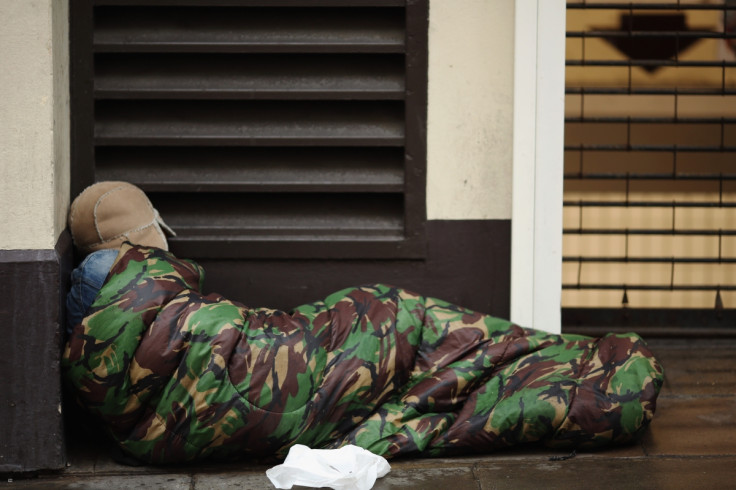Bob Blackman's landmark Homelessness Reduction Bill is step closer to becoming law
The bill will place more legal duties on councils to tackle homelessness in their areas.

The "landmark" Homelessness Reduction Bill has passed its second reading in the House of Commons after winning support from MPs across the benches.
Bob Blackman, a Conservative MP who sits on the Communities and Local Government select committee, introduced the private members bill to parliament. It was endorsed by the committee at the conclusion of an inquiry into homelessness.
Crisis, a homelessness charity, supports the bill, calling it one of the most important developments for four decades. "This is a landmark moment, and we'd like to thank the 100+ MPs from across the political spectrum who came together to back this unique bill, as well as government ministers for offering their support at such a critical time," said Jon Sparkes, chief executive of Crisis.
"We still have a long way to go before this bill becomes law, but we'll be there every step of the way to help make sure that happens. For 40 years we've had a system that fails too many homeless people.
"Time and again we hear from people who were turned away from help when they needed it most, despite the fact they had nowhere left to go. Yet if councils get the funding to make it work, the Homelessness Reduction Bill could help put an end to that injustice once and for all."
Campaigners feared the bill would not survive its second reading in parliament. It needed the support of at least 100 MPs in attendance in the House of Commons to progress, which it secured. Before becoming law, the bill now faces scrutiny by select committees, a third reading by MPs, and passing the House of Lords. It may be amended in the process.
The bill, which has cross-party support, will toughen up the legal duties on councils to prevent homelessness. Among the bill's measures is a legal duty on councils to help all those who are homeless, where at the moment they are only required by law to prioritise those with dependent children or who are particularly vulnerable, such as because of mental health problems.
Moreover, there is an extension of the period in which councils must intervene to stop a household becoming homeless. Currently, councils must act if a household is at risk of becoming homeless within 28 days. But the bill will double this period to 56 days, forcing councils to recognise earlier those who are at serious risk of losing their home.
"For too long we in this place have forced local authorities to ration their help to homeless people in their communities," Blackman told MPs. He also said the government should provide councils with additional funding to help them prevent and manage homelessness.
"From our Labour front bench, I welcome this bill," said John Healey, shadow housing minister. "I back this bill, and I back its cross-party purposes to see more help, earlier, for those people who are threatened with homelessness, and a reduction [in] those who are then hit with the misery of homelessness as well."
Data from the Department for Communities and Local Government shows a 10% increase over the year in the number of households accepted as homeless by English local authorities in the June to August quarter, hitting 15,170.
Sajid Javid, secretary of state for communities and local government, is backing to the bill. "No one should have to sleep rough on the streets," Javid said when announcing the government's support for the bill.
"We want to build a country that works for everyone, not just the privileged few. That's why we are determined to do all we can to help those who lose their homes and provide them with the support they need to get their lives back on track."
The Housing & Planning All Party Parliamentary Group called on the government to direct the millions of pounds of profit from its Help to Buy scheme to councils to support efforts to reduce homelessness.
© Copyright IBTimes 2025. All rights reserved.






















